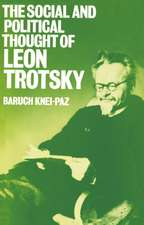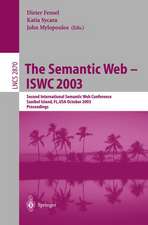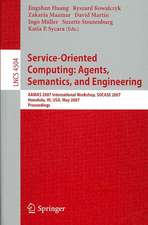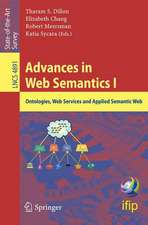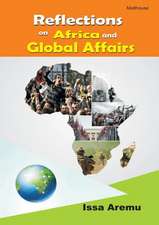Models for Intercultural Collaboration and Negotiation: Advances in Group Decision and Negotiation, cartea 6
Editat de Katia Sycara, Michele Gelfand, Allison Abbeen Limba Engleză Hardback – 2 mar 2013
With increasing globalization of business and science, cultural differences of the parties are an important factor that affects the process and outcomes of collaborative and self-interested interactions. The social science literature on culture as well as human collaboration and negotiation is vast. Most of this literature is devoted to work within the same culture. Artificial intelligence researchers, on the other hand, have developed computational models of cooperation, conflict resolution and negotiation, but paying almost no attention to identifying and modeling cultural factors. In recent years, we have witnessed a great increase in interest in understanding inter-cultural interactions. This has led to increased interest of social scientists and computational scientists in theoretical and experimental analysis of inter-cultural exchanges, modeling and support. Currently, these communities are largely unconnected. There is a great need to bring them together to share research work and experiences, discuss ideas and forge interdisciplinary collaborative relations.
This book will be of interest to researchers from AI/computer science and social/behavioral sciences fields, such as psychology, sociology, communications, organizational science.
| Toate formatele și edițiile | Preț | Express |
|---|---|---|
| Paperback (1) | 641.34 lei 6-8 săpt. | |
| SPRINGER NETHERLANDS – 7 mar 2015 | 641.34 lei 6-8 săpt. | |
| Hardback (1) | 647.61 lei 6-8 săpt. | |
| SPRINGER NETHERLANDS – 2 mar 2013 | 647.61 lei 6-8 săpt. |
Preț: 647.61 lei
Preț vechi: 809.51 lei
-20% Nou
Puncte Express: 971
Preț estimativ în valută:
123.92€ • 129.73$ • 102.54£
123.92€ • 129.73$ • 102.54£
Carte tipărită la comandă
Livrare economică 05-19 aprilie
Preluare comenzi: 021 569.72.76
Specificații
ISBN-13: 9789400755734
ISBN-10: 9400755732
Pagini: 212
Ilustrații: VIII, 202 p. 27 illus.
Dimensiuni: 155 x 235 x 17 mm
Greutate: 0.48 kg
Ediția:2013
Editura: SPRINGER NETHERLANDS
Colecția Springer
Seria Advances in Group Decision and Negotiation
Locul publicării:Dordrecht, Netherlands
ISBN-10: 9400755732
Pagini: 212
Ilustrații: VIII, 202 p. 27 illus.
Dimensiuni: 155 x 235 x 17 mm
Greutate: 0.48 kg
Ediția:2013
Editura: SPRINGER NETHERLANDS
Colecția Springer
Seria Advances in Group Decision and Negotiation
Locul publicării:Dordrecht, Netherlands
Public țintă
ResearchCuprins
Gerald F. Goodwin: Forword to the Volume.- Birukou, A., Blanzieri, E., Giorgini, P., & Giunchiglia, F. A: Formal Definition of Culture.- Salazar, M. R., Shuffler, M. L., Bedwell, W. L., and Salas, E.: Toward A Contextualized Cultural Framework.- Turan, N., Dai, T., Sycara, K., Weingart, L.: Toward a Unified Negotiation Framework: Leveraging Strengths in Behavioral and Computational Communities.- Hofstede, G. J., Jonker, C., Werwaart, T. A: Model of Culture in Trading Agents.- Fulmer, C. A., & Gelfand, M. J.: How Do I Trust Thee? Dynamic Trust Patterns and Their Individual and Social Contextual Determinants.- Jassin, K., Sheik, H., Obeid, N., Argo, N., Ginges, J.: Negotiating Cultural Conflicts Over Sacred Values.- Bui-Wrzosinska, L., Gelfand, M. J., Nowak, A., & Severance, L.: Studying trajectories of conflict escalation.- Dudik, M., & Gordon, G. J.: A Game-Theoretic Approach to Modeling Cross-Cultural Negotiation.- Paruchuri, P., Chakraborty, N., Zivan, R., Sycara, K., Dudik, M., & Gordon, G.: POMDP Based Negotiation modeling.- de Raad, W. E., Nowak, A., & Borkowski, W.: Modeling Dynamics of Multicultural Integration and Conflict.
Notă biografică
Katia Sycara received her PhD in Computer Science from Georgia Institute of Technology and holds an Honorary Doctorate from the University of the Aegean (2004). She is a Fellow of the Association for the Advancement of Artificial Intelligence (AAAI), Fellow of the Institute of Electrical and Electronic Engineers (IEEE) and the recipient of the 2002 ACM/SIGART Agents Research Award. She has given numerous invited talks, and has authored or co-authored more than 300 technical papers dealing with Multiagent Systems, Agents Supporting Human Teams, Human-Agent Interaction, Negotiation, Multi-Agent Learning and the application of these techniques to crisis action planning, scheduling, operations planning and e-commerce. She has served as the Program Chair of the Second International Semantic Web Conference (ISWC 2003), as General Chair of the Second International Conference on Autonomous Agents (Agents 98). She is a founding member and member of the Board of Directors of the International Foundation of Multiagent Systems (IFMAS). She is a founding member of the Semantic Web Science Association, and serves as the US co-chair of the US-Europe Semantic Web Services Initiative. She is a founding Editor-in-Chief of the journal "Autonomous Agents and Multiagent Systems"; an Editor-in-Chief of the Springer Series on Agents; on the Editorial Board of the Kluwer book series on "Multiagent Systems, Artificial Societies and Simulated Organizations"; the Area Editor for AI and Management Science of the journal "Group Decision and Negotiation". She also serves on the editorial board of the journal "Agent Oriented Software Engineering", "Web Intelligence and Agent Technologies", "Journal of Infonomics", "Fundamenda Informaticae", and "Concurrent Engineering: Research and Applications". She has served on the editorial board of the "ETAI journal on the Semantic Web" (1998-2001), on the Editorial Board of "IEEE Intelligent Systems and their Applications" (1992-1996), and "AI in Engineering" (1990-1996). Most recently she has organized the workshop "Agents for Autonomic Computing" at the 2008 International Conference for Autonomic Computing.
Michele Gelfand received her PhD from the University of Illinois Urbana-Champaign in 1996. She is President Elect of the International Association of Conflict Management, Past Division Chair of the Conflict Management (CM) Division of the Academy of Management, and Past Treasurer of the International Association for Cross-Cultural Psychology. She organized the program for the CM division in Hawaii in 2005, organized the IACM conference in Cergy, France, in 2001 and in Maryland in 1998, and she co-organized the conference on Negotiation and Culture at the Kellogg School of Management in 2002. She is founding editor of the series Advances in Culture and Psychology, co-editor of Understanding conflict and conflict management in organizations (with Carsten De Dreu, Jossey Bass), co-editor of The Handbook of Negotiation and Culture (with Jeanne Brett, Stanford University Press), and has published papers on culture and negotiation in the Annual Review of Psychology, Journal of Applied Psychology, Journal of Personality and Social Psychology, Academy of Management Review, and Academy of Management Journal.
Allison Abbe is a research psychologist at the Army Research Institute. Her research interests are in investigating factors that affect cross cultural leadership in the Army.
Michele Gelfand received her PhD from the University of Illinois Urbana-Champaign in 1996. She is President Elect of the International Association of Conflict Management, Past Division Chair of the Conflict Management (CM) Division of the Academy of Management, and Past Treasurer of the International Association for Cross-Cultural Psychology. She organized the program for the CM division in Hawaii in 2005, organized the IACM conference in Cergy, France, in 2001 and in Maryland in 1998, and she co-organized the conference on Negotiation and Culture at the Kellogg School of Management in 2002. She is founding editor of the series Advances in Culture and Psychology, co-editor of Understanding conflict and conflict management in organizations (with Carsten De Dreu, Jossey Bass), co-editor of The Handbook of Negotiation and Culture (with Jeanne Brett, Stanford University Press), and has published papers on culture and negotiation in the Annual Review of Psychology, Journal of Applied Psychology, Journal of Personality and Social Psychology, Academy of Management Review, and Academy of Management Journal.
Allison Abbe is a research psychologist at the Army Research Institute. Her research interests are in investigating factors that affect cross cultural leadership in the Army.
Textul de pe ultima copertă
With increasing globalization of business and science, cultural differences of the parties are an important factor that affects the process and outcomes of collaborative and self-interested interactions. The social science literature on culture, human collaboration and negotiation is mostly devoted to work within the same culture. Computer science and Artificial intelligence researchers have developed computational models of cooperation, conflict resolution and negotiation without paying a great deal of attention to identifying and modelling cultural factors.
The interest in understanding inter-cultural interactions has increased substantially and has led to greater interest of social scientists and computational scientists in theoretical and experimental analysis of inter-cultural exchanges, modelling and support. The aim of this volume is to bridge the gap and bring these communities together to share research work and experiences, discuss ideas and forge interdisciplinary collaborative relations.
The interest in understanding inter-cultural interactions has increased substantially and has led to greater interest of social scientists and computational scientists in theoretical and experimental analysis of inter-cultural exchanges, modelling and support. The aim of this volume is to bridge the gap and bring these communities together to share research work and experiences, discuss ideas and forge interdisciplinary collaborative relations.
Caracteristici
Bridges the gap in modelling collaboration and negotiation between computational sciences and social sciences Opens up the field for cross fertilization of ideas and methods in both communities First current published literature on this topic








